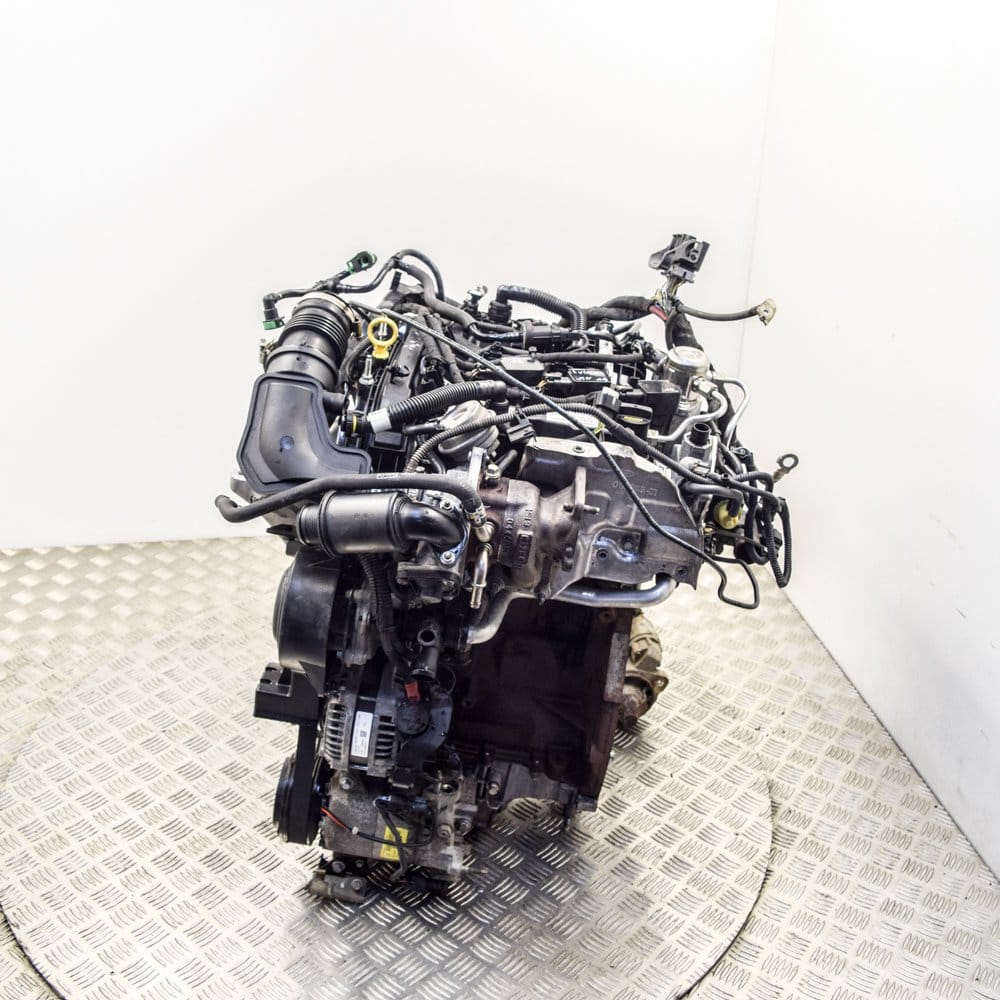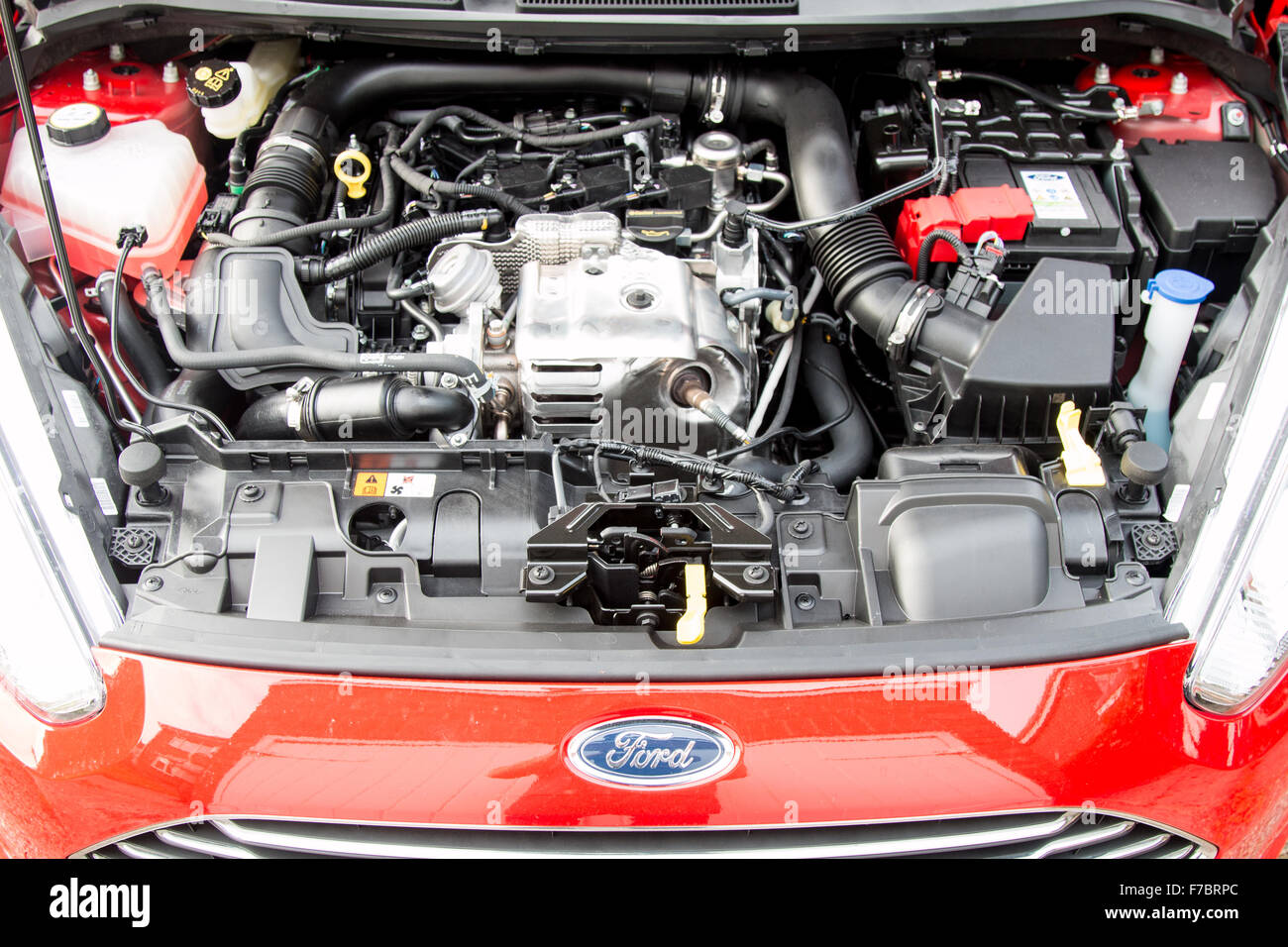Troubleshooting Ford Fiesta Engine Problems: What You Need to Know
Troubleshooting Ford Fiesta Engine Problems: What You Need to Know
Blog Article
The Future of Engines: Developments Driving Lasting Power Solutions
As the automotive industry navigates the crucial change towards sustainability, the future of engines is increasingly specified by groundbreaking innovations. Electric engine advancements, alongside appealing advancements in hydrogen fuel cells and biofuels, are reshaping the landscape of power services.
Electric Engine Advancement
The advancement of electric engine growths symbolizes a critical change in the vehicle and aerospace markets, driven by the urgent requirement for lasting options to fossil fuels. This shift is defined by considerable innovations in battery technology, power electronics, and electric motor style, which jointly boost the efficiency and efficiency of electric engines.
Current technologies have actually brought about the production of lighter, a lot more energy-dense batteries, such as lithium-silicon and solid-state batteries, which guarantee longer varieties and much shorter charging times. Additionally, renovations in electric motor effectiveness, such as making use of long-term magnets and progressed cooling down systems, allow electrical engines to run effectively under varying conditions. These enhancements not just enhance automobile efficiency however also add to a reduction in general power usage.
Moreover, the combination of sophisticated software algorithms has enhanced power management in electric cars, enabling regenerative braking and predictive charging methods. As producers significantly accept electric propulsion, the auto and aerospace markets are observing a paradigm change towards greener innovations. This development not only fulfills governing needs but additionally aligns with customer preferences for environmentally friendly transport services, solidifying electrical engines as a foundation of future lasting wheelchair.
Innovations in Biofuels
As the aerospace and auto markets progressively focus on sustainable power sources, improvements in biofuels emerge as a corresponding option to electrical engines. Biofuels, stemmed from organic products such as crops, waste, and algae, present an ingenious avenue for minimizing greenhouse gas discharges and reliance on fossil fuels.
Current study has concentrated on enhancing the effectiveness and sustainability of biofuel manufacturing. Second-generation biofuels use non-food feedstocks, decreasing competition with food supply and reducing environmental influence. Additionally, advancements in artificial biology have actually made it possible for the engineering of microorganisms to generate biofuels better, bring about greater returns and reduced production prices.
Additionally, the growth of drop-in biofuels allows for smooth assimilation into existing facilities, enabling a smoother change for industries traditionally reliant on fossil gas. ford fiesta engine. These gas can be used in existing engines without modifications, promoting their fostering across different markets
Investments in biofuel modern technology, together with encouraging plans, are crucial to drive advancement and scalability. As the worldwide community looks for to combat climate adjustment, biofuels supply a practical, instant solution that lines up with the overarching objective of sustainability in transportation and aeronautics.
Hydrogen Fuel Cell Technology
A growing variety of firms and researchers are discovering hydrogen fuel cell modern technology as a feasible option to standard power resources in transport and power systems. This innovation converts chemical energy from hydrogen right into power with an electrochemical response, with water as the only byproduct, making it an environmentally friendly alternative.
The core of hydrogen fuel cells is the fuel cell pile, where hydrogen particles are split into protons and electrons. The flow of electrons produces electrical power, while protons relocate through a membrane to integrate with oxygen from the air, forming water. This process leads to high effectiveness and reduced discharges, placing hydrogen gas cells as a crucial gamer in the transition to sustainable energy.
Considerable improvements have actually been made in improving the durability and performance of fuel cells, alongside lowering expenses through ingenious production strategies. The advancement of hydrogen production methods, such as electrolysis powered by sustainable power resources, boosts the sustainability of the overall system. As infrastructure for hydrogen refueling expands and production methods end up being more efficient, hydrogen fuel cell innovation holds wonderful assurance for decarbonizing various industries, including heavy-duty transport and stationary power generation.
Hybrid Solutions and Their Impact
Crossbreed systems represent a considerable development in sustainable engine technology, combining conventional inner burning engines with electric propulsion to enhance power efficiency and decrease exhausts (ford fiesta engine). This twin approach allows vehicles to make use of both source of power, enabling greater adaptability in energy intake and decreasing reliance on nonrenewable fuel sources

In enhancement to environmental benefits, crossbreed systems supply customers click here to read a viable change in the direction of completely electrical automobiles. They ease array stress and anxiety by combining the ease of gas with the advantages of electrical propulsion, making them an appealing option for a broader audience. As suppliers buy hybrid technology, the development of more advanced battery systems and light-weight products continues to improve efficiency. Overall, hybrid systems stand for a crucial step in the direction of achieving sustainable transportation and resolving the urgent requirement for environmentally pleasant power services.
The Duty of AI in Engine Style
Leveraging advanced algorithms and device knowing strategies, the automobile industry is progressively integrating expert system (AI) right into engine style procedures. AI boosts the effectiveness and efficiency of style by analyzing vast datasets to recognize optimal configurations and efficiency specifications. This ability permits designers to simulate different operating problems and anticipate engine habits under several scenarios, dramatically minimizing the time and expense related to standard prototyping techniques.
Additionally, AI facilitates the growth of sophisticated materials and combustion procedures tailored for sustainability. By optimizing gas performance and minimizing exhausts, AI-driven layouts line up with international campaigns aimed at decreasing the carbon footprint of vehicle engines. Maker understanding formulas can additionally predict upkeep needs, resulting in boosted dependability and durability of engine elements.
Furthermore, AI contributes in the assimilation of electrification modern technologies, such as hybrid systems, where it can maximize battery management and power recuperation procedures. As the market relocates towards more sustainable power remedies, the duty of AI in engine layout comes to be significantly crucial, driving innovation and enhancing the efficiency of future engines. Inevitably, the collaboration between AI and engine style declares a new age of smarter, cleaner, and more reliable auto modern technologies.

Final Thought
Finally, the future of engines is being formed by a merging of ingenious innovations that focus on sustainability. Electric engine improvements, biofuel developments, hydrogen gas cells, and hybrid systems collectively add to a considerable reduction in exhausts and ecological influence. Furthermore, the assimilation of fabricated intelligence in engine dig this style enhances performance and efficiency. These transformative solutions highlight a commitment to developing a cleaner, more sustainable vehicle landscape, eventually profiting both society and the atmosphere.
Electric engine advancements, together with encouraging advancements in hydrogen fuel cells and biofuels, are improving the landscape of power solutions. Furthermore, renovations in electrical motor effectiveness, such as the usage of irreversible magnets and progressed cooling systems, enable electrical engines to run properly under varying conditions. By enhancing gas efficiency and lessening discharges, AI-driven styles line up with international campaigns aimed at lowering the carbon impact of automotive engines. As the market moves towards even more lasting power solutions, the role of AI in Continued engine design comes to be progressively crucial, driving technology and boosting the performance of future engines. Electric engine improvements, biofuel developments, hydrogen gas cells, and hybrid systems collectively add to a significant decrease in discharges and environmental impact.
Report this page